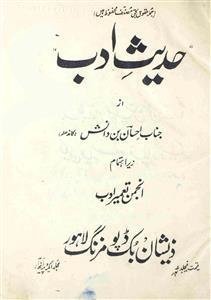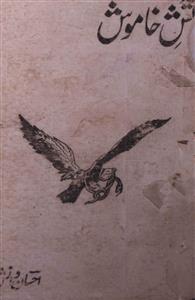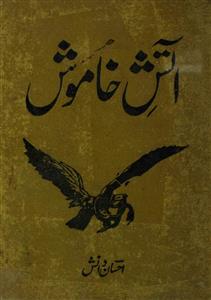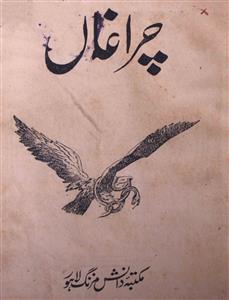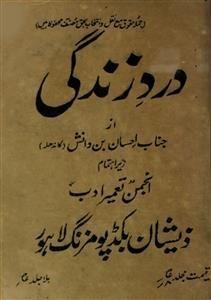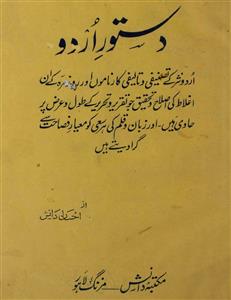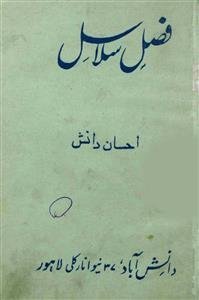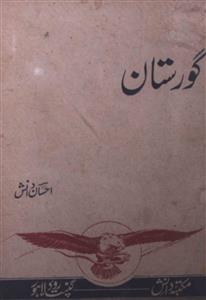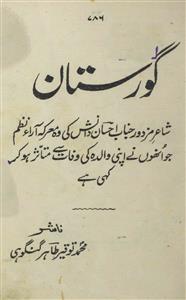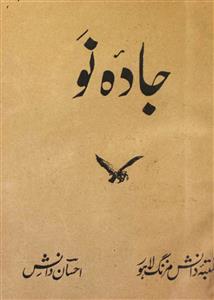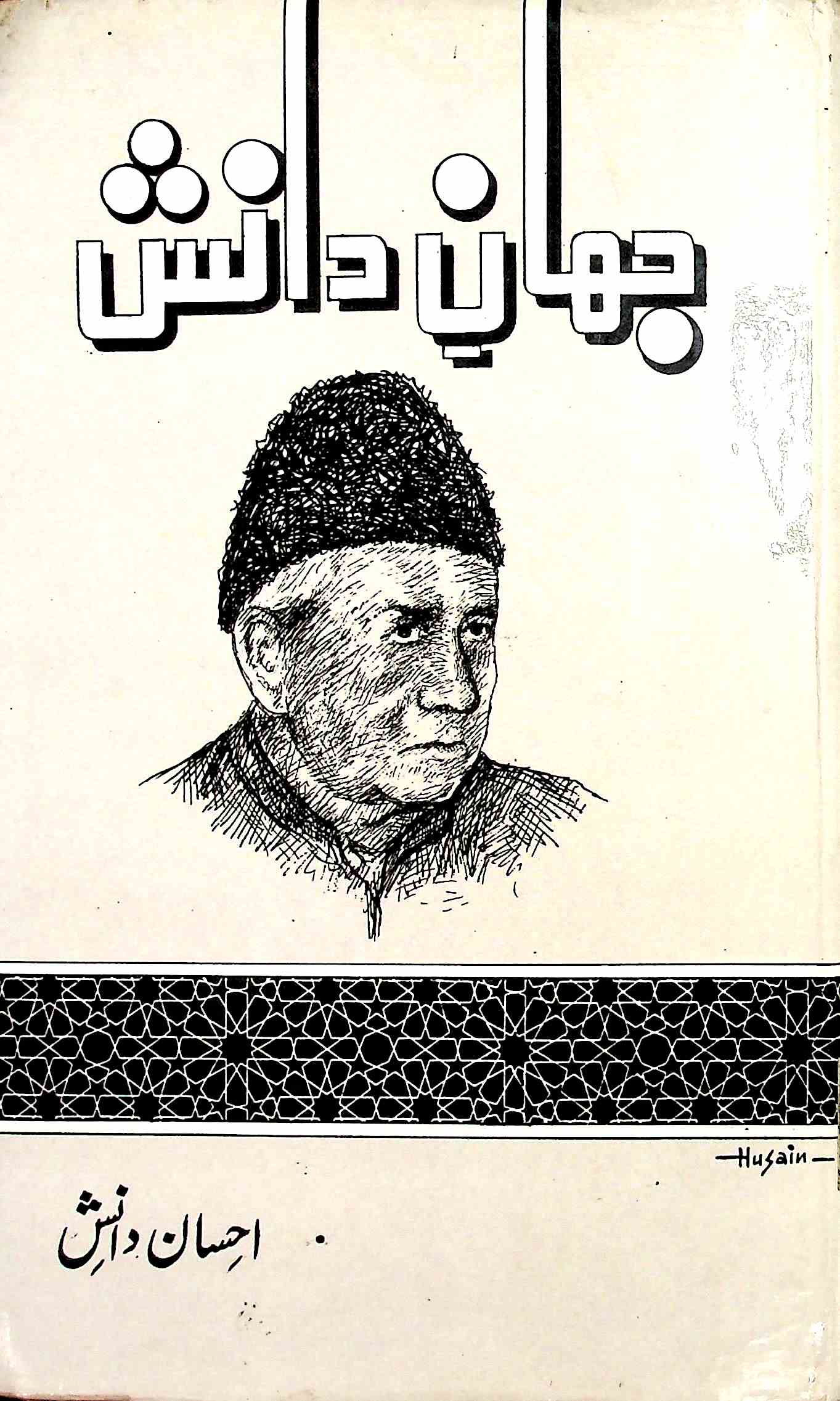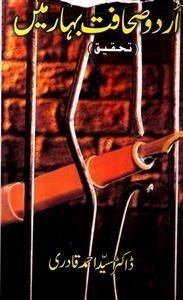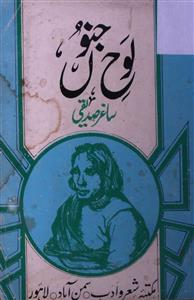 For any query/comment related to this ebook, please contact us at haidar.ali@rekhta.org
For any query/comment related to this ebook, please contact us at haidar.ali@rekhta.org
About The Book
احسان دانش کی شاعری عوامی شاعری کی اس روایت کی تجدید و ارتقا ہے جس کا اولین نقش نظیر اکبر آبادی کی شاعری تھی لیکن نظیر کی طرح احسان دانش صرف تماشائی نہیں بل کہ ان کی نظموں میں دل سوزی اور درد مندی کے گہرے نقش موجود ہیں ۔ حضرت احسان دانش کی شاعری مزدور اور کسان کی زندگی کے تمام پہلوؤں پر محیط ہے نیز جاگیردار اور صنعت کار کے مظالم کا شعور بھی ہے۔ ان کی شاعری میں اخلاقی قدروں اور مشرقی روایات کا خوبصورت امتزاج ملتا ہے۔دینی اور ملی احساس کے پردے میں وطن پرستی کے جذبات بھی جھلکتے ہیں ۔ان کے یہاں حمدو نعت کے مضامین بھی بڑے دل کش اور دلربا ہیں۔ احسان دانش بنیادی طور پر انقلابی شاعر ہے۔ ان کی شاعری کا موضوع وہ مفلوک الحال طبقہ ہے جو ننگا اور بھوکا ہے جو جھونپڑی میں زندگی کی تلخیوں سے دوچار ہوتے ہوئے زندہ رہنے کی دھن میں سسک رہا ہے اور بے رحم سماج کے ہاتھوں زندہ درگور ہے۔احسان دانش ایسے تباہ حال اور پسے ہوئے لوگوں کے طبقے سے اس قدر قریب رہے ہیں کہ ان کے دھڑکتے دلوں کی آواز خوب سن سکتے ہیں۔ زیر نظر کتاب ان کا سب سے پہلا شعری مجموعہ ہے جو "حدیث ادب" کے نام سے شائع ہوا۔اس مجموعہ کے تعارف کے تحت وہ خود لکھتے ہیں"میں اپنے ان خیالات کا ناچیز مجموعہ جنھوں نے آلام و مصائب کے مختلف اوقات میں احساس کی بیدار کن چٹکیوں سے اشعار کی صورت اختیار کرلی ہے"۔
About The Author
Ehsan Danish was born in Maulanan, Kandhla, a small town in the Shamli district of Uttar Pradesh, India. He belonged to a poor family and could not continue his study due to financial reasons but still learned the Arabic and Persian languages on his own. Later he migrated to Lahore and settled there permanently. He struggled very hard to earn his living. He worked as an ordinary labourer for years in odd jobs, finally becoming a poet of excellence. His autobiography, Jahan-e-Danish, is a classic and has inspired many people. Danish has written more than 80 books and hundreds of articles about and including poetry, prose, linguistics, philology, autobiographies and a famous interpretation of ‘Diwan-e-Ghalib’.
At the beginning of his career his poetry was very romantic but later he wrote his poems more for the labourers and came to be called ‘Shayar-e-Mazduur’ (Poet of the workmen) by his audience. His poetry inspired the common people's feelings and he has been compared with Josh Malihabadi. He holds the unique position as one of the best poets of all times, with fine, romantic and revolutionary, but simple style of poetry. He set up his own publishing house called Maktaba-e-Danish.
His literary output includes Maqamat, Jada-e-Nau, Nava-e-Kargar, Zakhm-o-Marham, Dastoor-e-Urdu, Aatish-e-Khamosh, Chiraaghaan etc. Some of his works are still unpublished. He was rewarded by the government of Pakistan for his services to Urdu literature and language.
He died on 22 March 1982 in Lahore, Pakistan.
 For any query/comment related to this ebook, please contact us at haidar.ali@rekhta.org
For any query/comment related to this ebook, please contact us at haidar.ali@rekhta.org
